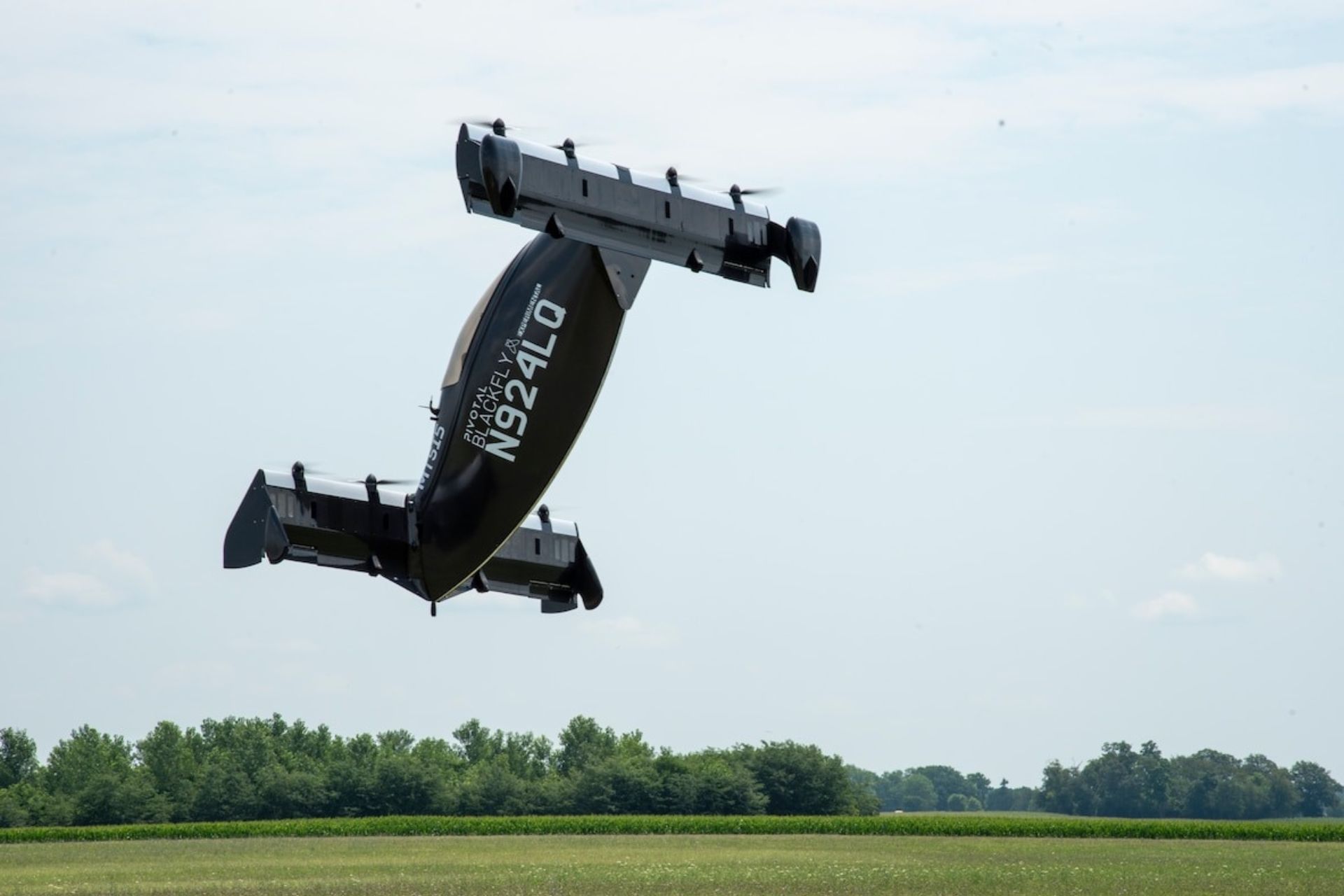Breaking News
US Air Forces Evaluate Electric Vertical Takeoff and Landing Aircraft for Military Applications.
Since mid-June 2024, experts from AFWERX, the innovation arm of the Air Force Research Laboratory within the Department of the Air Force, have been collaborating with Beavercreek, Ohio-based defense contractor Modern Technology Solutions Inc. (MTSI) to evaluate the Pivotal BlackFly electric vertical takeoff and landing (eVTOL) aircraft, along with other electric aircraft. This effort is part of the AFWERX Agility Prime program, which focuses on assessing the aircraft and their supporting ecosystem through an operational leasing initiative.
Follow Army Recognition on Google News at this link

Experts from AFWERX and Modern Technology Solutions Inc. observe a Pivotal BlackFly eVTOL aircraft test flight at Springfield-Beckley Airport, Ohio, on July 12, 2024 (Picture source: U.S. Air Force)
Jacob Wilson, acting branch chief of AFWERX Agility Prime, explained that the program explores various military applications, including logistics, material transport, emergency response, and intelligence, surveillance, and reconnaissance (ISR) missions. The goal is to accelerate the commercial adoption of these innovations in the U.S., ensuring a strong industrial base for these technologies and transitioning the most suitable ones to military use.
The day of testing began with equipment preparation in a hangar at the National Advanced Air Mobility Center of Excellence (NAAMCE). The NAAMCE, opened on September 18, 2023, aims to advance the development and integration of advanced air mobility technologies. It holds a certificate of authorization for unmanned flight operations, enabling extensive testing of airspace integration and potential policy development for both piloted and remotely piloted aircraft.
The team connected a BlackFly aircraft to the back of a truck and took the remote control for the DANNAR, another AFWERX partner. The DANNAR Mobile Power Station provides up to half a megawatt of energy storage in its high-capacity lithium-ion batteries and was used to power various ground control systems and recharge the aircraft. Equipped with four-wheel drive and multi-mode steering, the DANNAR system is designed for versatility and flexibility, enhancing its usability in challenging environments.
Once the ground control station was set up on the flightline, the remote pilot was ready for takeoff. The BlackFly’s eight propulsion motors, four on each wing, began to hum softly, gradually increasing in pitch as the rotors spun faster. Its unique V-shaped tail and streamlined fuselage gave it a futuristic appearance. The vertical takeoff required minimal space, demonstrating the BlackFly’s capability to operate in confined areas. The remote pilot then transitioned the aircraft from vertical ascent to forward flight by adjusting the control input, with the rotors gradually tilting to propel the aircraft forward while continuing to climb.
Joshua Bohun, associate director for advanced air mobility training at Sinclair College and remote pilot in command, detailed the flight profile focused on an ISR use case. Sinclair College supports MTSI in the evaluation of the BlackFly. The aircraft flew to a specific location, monitored a target, performed orbits around it, and then returned. Bohun noted that the advanced control systems simplified many aspects of traditional piloting, making the aircraft easy to fly. Throughout the flight, he monitored the aircraft’s systems, including battery levels and motor temperatures, to ensure safe operations.
After completing its 20-minute test flight, the aircraft landed and was plugged into the DANNAR for recharging. The team meticulously recorded detailed notes on each phase of the flight, crucial for analyzing performance across different configurations and mission profiles. Lane, a team member, emphasized the structured approach to data collection for all vendors in the Agility Prime portfolio.
Daily operations aim to maximize flight tests, with six BlackFly aircraft available to ensure continuous testing and data collection, even if issues arise with individual aircraft. In addition to the BlackFly, the MTSI team has also evaluated other electric aircraft, including the BETA ALIA, Pyka Pelican Cargo, and Pipistrel Velis Electro, as part of the operational leasing effort.
Flight operations are scheduled to continue until mid-September, after which a comprehensive report on the various aircraft’s performance and their potential for government acquisition will be provided.


























